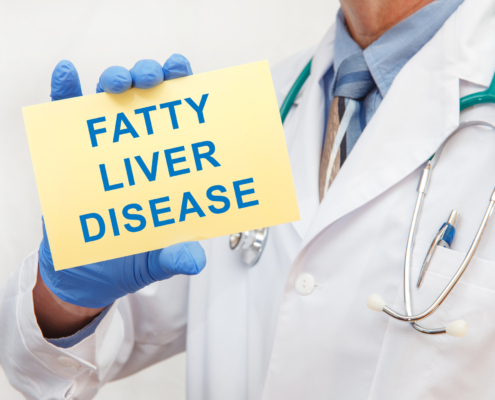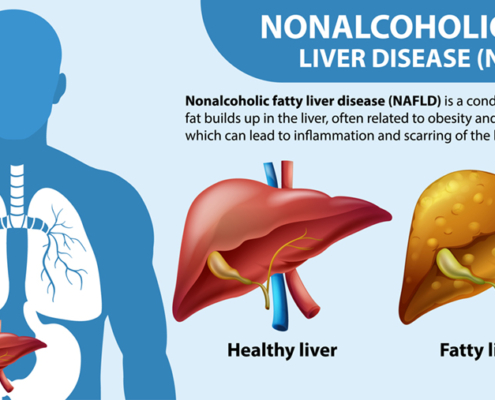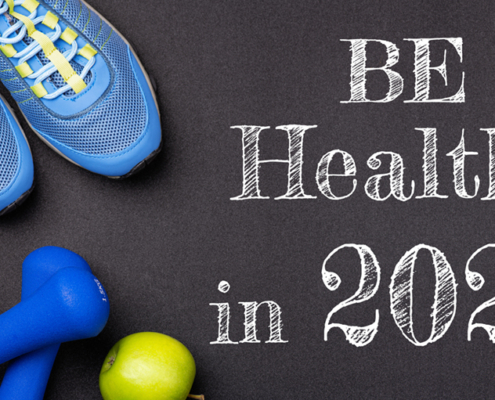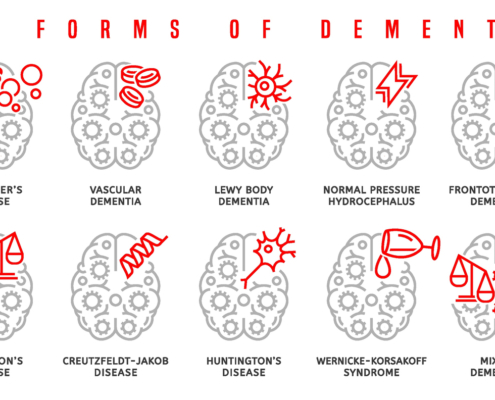
The Link Between Endocrine-Disrupting Chemicals and Fatty Liver Disease
Improve Liver Health with Tips from a Long Island RDN
There is a growing epidemic of fatty liver disease that is paralleling the increase in obesity and diabetes mellitus in countries that consume a Western diet.
Since fatty liver…

Nutrition Tips to Prevent, Manage, and Reverse Fatty Liver Disease from a Long Island Dietitian
MASLD (metabolic dysfunction-associated steatotic liver disease) previously known as NAFLD (nonalcoholic fatty liver disease), is now recognized as the most common liver disease worldwide, affecting approximately 25% of the global population.…

New Year’s Nutrition Resolutions from a Long Island Dietitian
New Year’s Nutrition Resolutions from a Long Island Dietitian
Dietary Interventions and Eating Behaviors for Sustainable Change
Though a New Year’s resolution signifies a new start, many people fixate on unrealistic goals that are…

Healthy Holiday Eating Tips from a New York Dietitian: Manage Your Health and Waistline
You can celebrate the holidays without leaving healthy eating behind. Enjoy the food and festivities. Most foods, even special holidays “treats”, can be part of a healthy eating plan. The key is moderation and mindfulness.
Long Island…

DEMENTIA PREVENTION SHOULD START AT MIDLIFE. The time to start is in your 40’s.
The link between brain health and nutrition is irrefutable. As a Long Island dietitian, I have spent my career working to help patients improve their wellness through individualized dietary interventions, and this includes providing evidence-based…

What is Food as Medicine?
Food as Medicine is based upon the recognition that food and diet play important roles in disease prevention and management. The fact that diet can impact an individual’s health is now well documented and accepted by healthcare providers…

8 Healthy Eating Tips for the Holidays – Maintain a Healthy Weight, Feel Energized, Keep Your Immune System Strong
Though the holiday season has started, there’s no need to leave your healthy eating behind. Celebrate the season with family, friends, and tasty food. Reduce your chances of gaining those holiday pounds. Set realistic expectations, aim for…

Food Expiration Dates: What they really mean explained by a Long Island Dietitian
Although we call them expiration dates, most don’t actually claim anything is expiring or unsafe. Instead, the labels say fresh until, display until, best when used by, better if used by, sell by, best by, enjoy by, best before, or—perhaps…

How to Eat Healthy Food Every Day Simple Tips for Healthy Eating from a Long Island RDN
I am often asked how to eat healthy. It is not difficult - and my reply is one sentence long:
Eat Real Food, Not too much, Mostly plants
Of course, this is an oversimplification, and not for everyone, but it makes the point
There…

The Food Plan to Prevent and Manage Diabetes, explained by a registered dietitian nutritionist
The prevalence of type 2 diabetes is rising worldwide, especially in older adults. Diet and lifestyle are effective tools for type 2 diabetes prevention and management. Though a plant-based food plan may be new to the public, it is not new…
